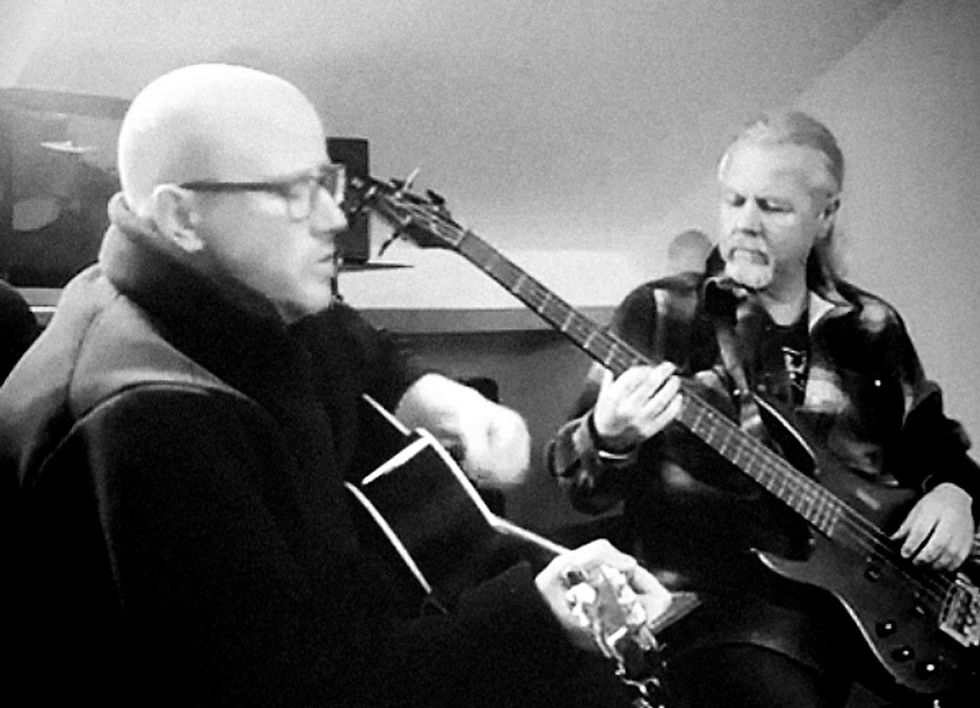Tap-ping into a rebellious history
- Maurice Whelan
- Jun 24, 2025
- 3 min read

AT THE junction of North King Street and Church Street on Dublin’s northside stands a now-derelict public house that many Dubliners remember simply as ‘The Tap.’ Over the years, the pub has changed hands, names, and finally fell silent—but the building holds a turbulent past that helped shape the course of Irish history.
In 1916, during the Easter Rising, the pub was known as ‘O’Reilly’s.’ The surrounding streets became the scene of some of the most intense fighting of the rebellion. The pub earned the nickname ‘O’Reilly’s Fort’ and was defended by volunteers of the First Dublin Battalion, led by Commandant Ned Daly. Daly’s headquarters at nearby Capuchin Hall still stands today as a silent witness to those events.
From this strategic stronghold, the Irish Volunteers inflicted significant losses on the South Staffordshire Regiment. One British officer, reportedly overwhelmed by panic, repeatedly ordered his men to charge rebel barricades, resulting in heavy casualties. The situation escalated until British General Lowe issued a chilling command: “No prisoners were to be taken.” He also declared that the rebels ‘had placed themselves outside the law.’
British soldiers interpreted the order as a green light for indiscriminate violence. They murdered 15 civilians—including two teenagers—many of whom were buried in their own back gardens after soldiers forced their way into homes under the pretense of searching for rebels.
In the aftermath of the Rising, two civilians—Patrick Bealen and James Healy—were found buried in the cellar of the pub by an unsuspecting pot boy. Dublin Corporation voted 22 to 1 in favour of holding a public inquiry, but none ever took place. At the eventual inquest, many witness statements were discredited. No British soldier was ever charged. General Lowe later remarked: “Under the circumstances as a whole, the troops behaved with the greatest restraint.”
Today, a plaque stands in the area, commemorating the civilians who lost their lives during those grim days.
The arrest of Kevin Barry
Another plaque affixed to the pub is in commemoration of Kevin Barry—the 18-year-old medical student and IRA volunteer who was arrested adjacent the building in 1920, during the War of Independence.
Barry had taken part in a failed arms raid that left three British soldiers dead. After his weapon jammed, he hid beneath a British Army vehicle. A local woman, fearing he would be crushed, unknowingly exposed his hiding place. Barry was arrested, tortured in an effort to extract the names of his comrades and court-martialled. He never talked.
Despite escape plans, vigils, and widespread calls for clemency, Barry was executed by hanging. Kevin went to the hangman happy and content to die for Ireland. “It’s nothing to give one’s life for Ireland,” he said. “I’m not the first and maybe I won’t be the last.”
In 2001, following a decades-long campaign, Barry and the other nine men known as the ‘Forgotten Ten’ were exhumed from Mountjoy Prison and reinterred in the Republican Plot at Glasnevin Cemetery.
Kevin Barry’s refusal to betray his comrades elevated him to iconic status within Irish Republican history. His legacy inspired songs, poems and memorials. One lesser-known tribute can be found in St Catherine’s Church on Meath Street, where a bust of Barry, disguised as a saint, resides. A sculptor had been commissioned to create busts of Irish saints. When it came time to sculpt Saint Kevin of Glendalough, he used a death mask of Kevin Barry instead of a generic likeness.
Born on Fleet Street in Dublin’s Temple Bar, Barry was a Dubliner of Carlow extraction. A final plaque—this one perched above the door of a hotel—marks the site of his family home.
A quiet street, loud with history
Today, the pub stands derelict and forgotten by many, but its walls witnessed the brutality of the British Empire, the courage of Irish rebellion, and the quiet heroism of ordinary people. At this crossroads, two defining chapters of Irish history unfolded. The plaques are modest, but their stories are anything but.







Comments